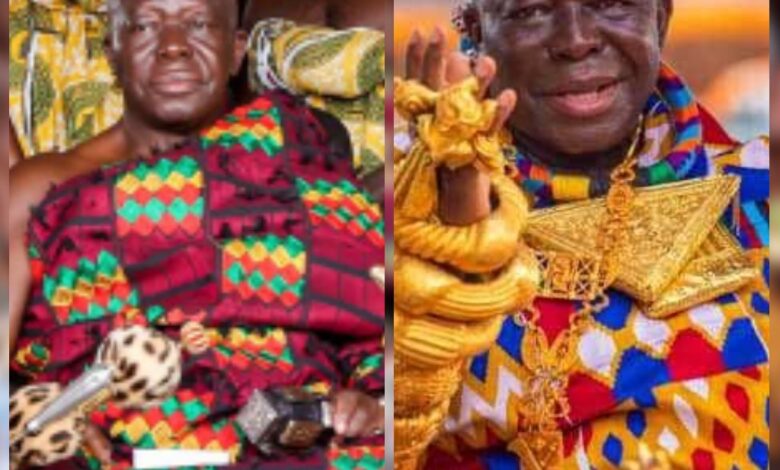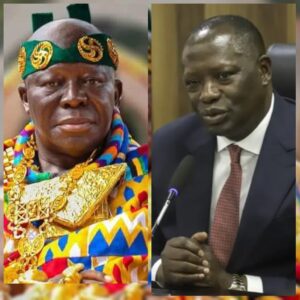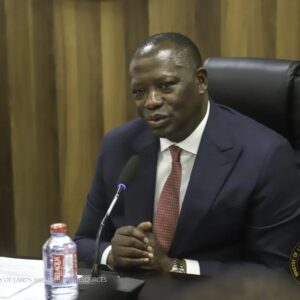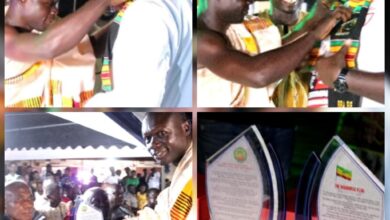Galamsey Fight or Political Theatre? Asantehene Exposes State’s Double Standards
Galamsey Fight or Political Theatre? Asantehene Exposes State’s Double Standards

Share this
Galamsey Fight or Political Theatre? Asantehene Exposes State’s Double Standards

Ghana’s Minister for Lands and Natural Resources, Emmanuel Armah-Kofi Buah—who also serves as acting Minister for Environment, Science and Technology,has declared the country’s forest reserves and river bodies as Security Zones to be protected at all costs.
The announcement came during the closing ceremony of a week-long training for the National Anti-Illegal Mining Operations Secretariat (NAIMOS) in Sunyani. The Minister reaffirmed government’s “uncompromising commitment” to end galamsey.
But critics say the rhetoric masks a deeper paradox: state institutions mandated to enforce the law are allegedly compromised.
For over a decade, high-profile task forces such as Operation Vanguard, Operation Halt, and the Inter-Ministerial Committee on Illegal Mining have been launched with bold promises. Yet many crumbled under corruption, nepotism, and complicity some members even taking bribes to shield illegal miners.

The bluntest reality check came in Kumasi, when the Asantehene, Otumfuo Osei Tutu II, rejected a pre-written speech that downplayed the crisis. He openly accused organizers of hypocrisy, declaring that the real galamsey kingpins were sitting in the very room, pretending innocence.
His words reflected what many Ghanaians believe: that the fight against illegal mining has become an orchestrated charade, with political actors allegedly protecting mining networks for personal gain.
While declaring rivers like the Pra, Tano, Ankobra, and Offin as security zones is commendable, experts warn it could be another symbolic gesture unless backed by genuine enforcement and institutional integrity.
With communities facing poisoned rivers, deforested reserves, and collapsing livelihoods, the stakes are no longer just environmental,they are existential.
The Asantehene’s rebuke now stands as a moral compass, forcing Ghana to choose: protect its natural resources with sincerity or continue recycling failed promises in the name of galamsey.








